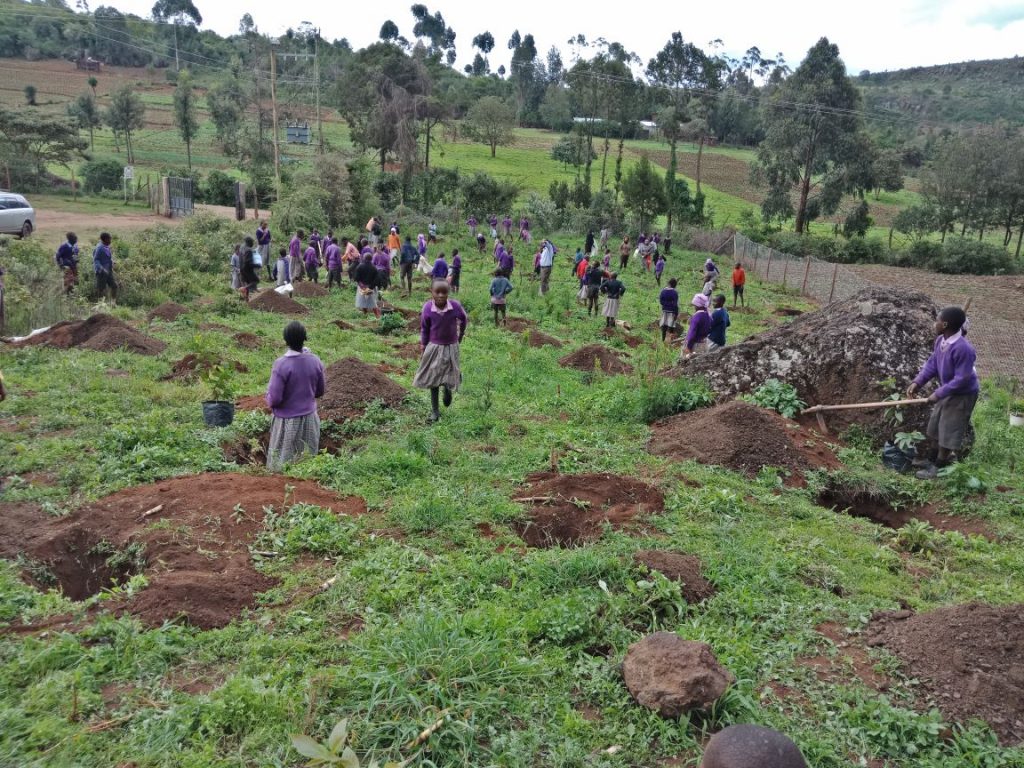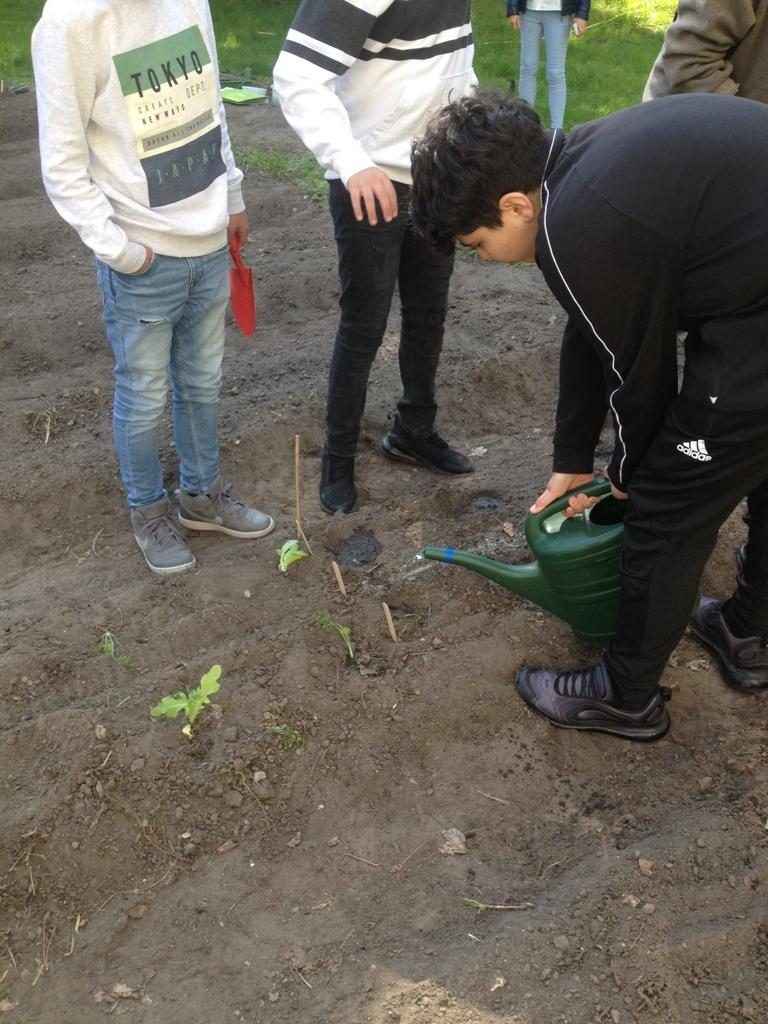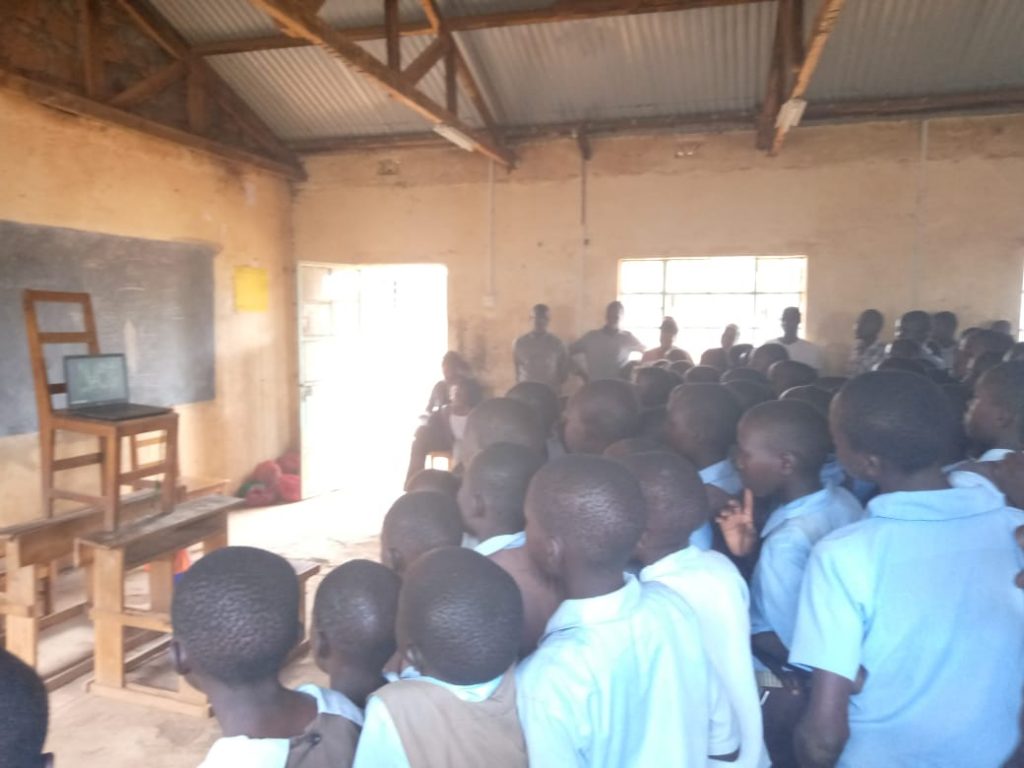What do schoolchildren in Germany and in Kenya have in common? They go to school, have to learn declinations and mathematics tables by heart, have exams etc. But most of all, they’re looking forward to spend time outside in their garden, where they grow their own food!
Since Spring 2018 we’re setting up a cooperation between a school in the area of Berlin-Neukölln and our Kenyan partner organisation “Seed Savers Network” in Gilgil. Instead of writing letters to each other, the school classes use the mean of pictures and videos to discuss with each other.
The starting point of this exchange is gardening and food habits, but the school kids are very curious and want to know much more about their new friends! How long a school day is, what kind of games are being played at home, what kind of job they dream of doing. The everyday life from people on the other side of the Planet is so fascinating!
Our partner organisation in Kenya isn’t merely into seed saving and organic farming training, it also works with an educational purpose. Part of its programme takes places in school garden, where pupils take care of their own school garden after class, in order to offer them an access to fresh fruits and vegetables. They implement “Fruit Tree Gardens” or “Vegetable Gardens” as a tool to introduce fresh produce into their diet with the educational aim to show how easily food can be grown on a small surface of land. Each kid is responsible for a tree or a plant. Different kinds of trees are grown, in order to supply the children with fresh and ripe fruit at any time of the year.

In Berlin-Neukölln, a 6th grade class is taking care of a small patch of land, where the children grow vegetables and herbs. For many of the children, this means the first real contact with soil and the growing of food. They get to know new vegetable sorts and learn to value food more.

The exchange works this way: pictures and videos from the partner institutions are shown and discussed in the schoolrooms. After that answers are being recorded outside in the respective gardens and sent to the partner country. The aim of this exchange is a change of perspective regarding consumption, an understanding of global issues and of course, the ignition of friendships without borders!


